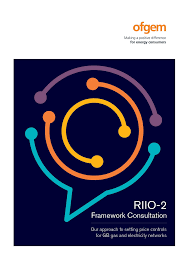The UK energy regulator, Ofgem’s RIIO-2 Challenge Group, launched in September 2018, has issued its report, revealing verdicts and critiques regarding the business plans proposed by energy network companies for the RIIO-2.
The report showcases the group’s findings after more than a year of meetings with Ofgem, transmission companies’ user groups, the Electricity System Operator (ESO), and gas distribution companies’ customer engagement groups.
RIIO-2 Independent Report
The RIIO-2 Challenge Group has recently published its report last 24 January 2020, which details the findings of the group’s independent analyses on the Business Plans tendered by energy network companies for the Revenue = Incentives + Innovation + Outputs or RIIO-2.
The report reveals vital information that the Ofgem will be using to form Final Determinations regarding the revenue that the companies require to complete and operate their future businesses. The group also anticipates their report to be utilised by entities participating in Ofgem’s Open Hearings this year.

One of the key findings of the group is the little justification they see in granting the additional £4 billion in expenditures compared to the RIIO-1 costs. This amount is 20% higher than the initial proposed budget. They acknowledged that the costs were related to the net-zero transition, but cited that these expenditures were not a primary factor in the plan that focuses on a business-as-usual approach.
It also concluded that the Cost of Capital assumed by Ofgem does not make their businesses unfinanceable, despite companies protesting about the upcoming price controls.
It also concluded that the Cost of Capital assumed by Ofgem does not make their businesses unfinanceable, despite companies protesting about the upcoming price controls.
Environmental output proposals were also deemed as unclear and ambitious by the group, stating that Consumer Value Propositions by the companies will not add value for consumers.

Further, the group expressed its disappointment that no company other than the National Grid ESO has been proactive in building the path to a net-zero economy, which requires energy networks to undertake a massive transformation towards energy transition.
Despite citing the proactiveness of ESO, the group questioned whether ESO could deliver the IT change programme, saying it is larger and more demanding than its past projects.
The ESO presented its RIIO-2 business plan to the regulator in December, focusing heavily on decarbonisation.

The RIIO-2 Challenge Group is composed of thirteen experts independently investigating and critiquing network companies’ proposals for Ofgem. The members are from different organisations and institutions in the UK, including Imperial College of London, Competition and Markets Authority, the National Infrastructure Commission, among others.
Networks Refute
The damning critique that zoned in on electricity transmission or the RIIO-T2 has met negation from network companies. The Energy Networks Association (ENA) stated the network companies have made efforts to innovate projects since the price control period for low-carbon transition has been put in effect last 2013.
The association declared its disagreement with some of the conclusions in the report, saying the business plans have been curated following extensive engagement with stakeholders and customers to reflect their respective priorities. The ENA said it would continue to work with the government, Ofgem, and stakeholders to provide cost-effective, low-carbon energy for the public.
Scottish and Southern Electricity Networks (SSEN) transmission arm Scottish Hydro Electric Transmission (SHET) is one of the companies cited in the report, having submitted its business plans for the RIIO-T2 last December disclosing its five goals.
SSEN spokesperson recognised the importance of the Challenge Group for Ofgem’s future decisions but stated displeasure in the report’s failure to reflect the entirety of their business plan and documents prepared to support it.
SSEN said the business plan was crafted after two extensive years of engaging with stakeholders, aiming to deliver an affordable and reliable network while also growing the scale and ambition in investment.

According to the report, the National Grid ESO is the most prepared among all the companies explored. An ESO spokesperson welcomed the feedback from the Challenge Group, saying that they look forward to engaging further with the regulator and stakeholders during the Open Hearings set to commence in the spring.
Following the report, the Ofgem will be holding consultations on Draft Determinations in July, leading to the Final Determinations to happen in November. The Open Hearings will be kept public in regions to encourage stakeholders to challenge the business plans and respond to calls for evidence.
The report was published ahead of the deadline and is in time for the reveal new set of price controls on electricity transmission for April 2021, and on electricity distribution for April 2023.
